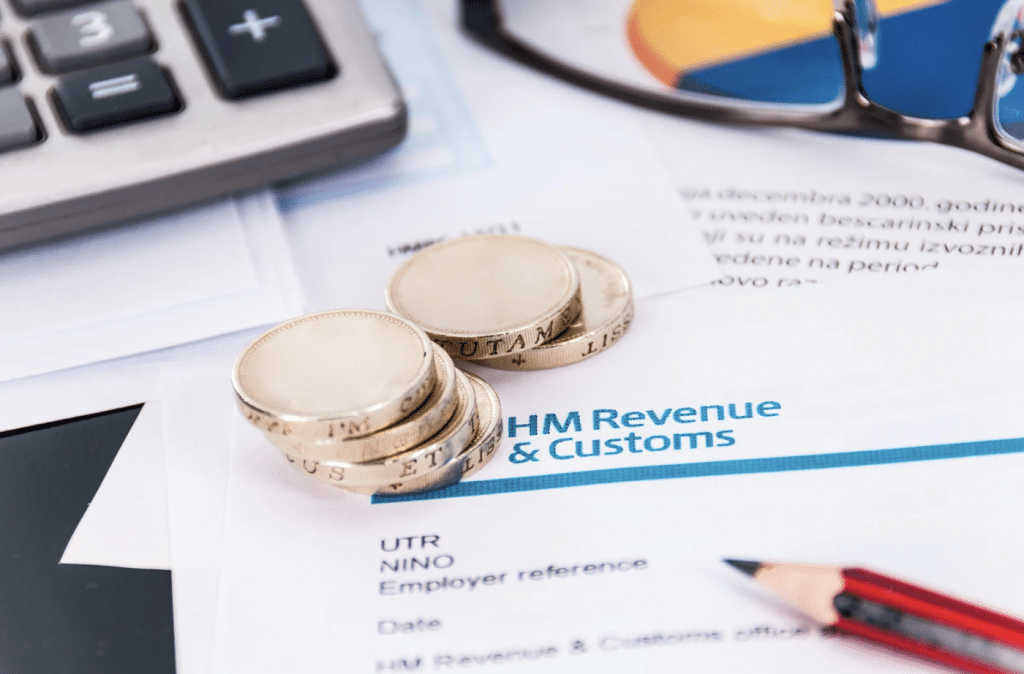Understand how UK expat tax laws impact your finances, including double taxation rules. Get expert tax advice for UK expats with clear examples and practical tips.
What this article covers:
- When UK expats are taxed on foreign income — and when they’re not
- What the Statutory Residence Test means for globally mobile individuals
- How tax treaties, tie-breaker rules, and credits protect you from double taxation
- What counts as UK-source income and how common mistakes lead to unexpected tax bills
- Real-world examples including remote workers, landlords abroad, and dual residents
Table of Contents
- What Income Is Taxed for UK Expats?
- Income Tax Thresholds and Reliefs
- Understanding Your UK Tax Residency Status
- How Double Taxation Works for UK Expats
- Common Scenarios: Examples of UK Tax Impacts on Expats
- Tips and Tax Advice for UK Expats
- Key Takeaways: What Every UK Expat Needs to Know
What Income Is Taxed for UK Expats?
UK-sourced vs foreign-sourced income
If you’re a UK tax resident, you’re normally taxed on your worldwide income – that includes both UK and foreign income. This means your earnings, investments, or pensions from other countries must also be reported to HMRC.
If you’re not a UK tax resident, things are different. You’re only taxed on your UK-source income – typically things like UK property rentals, UK pensions, or employment performed in the UK. Income that arises outside the UK is usually not taxable, unless you’re still considered resident for the year.
Employment, rental, pensions, and savings income
Each type of taxable income is treated slightly differently depending on whether you’re UK resident or not, and where the income arises.
- Employment income: If you’re UK resident, all employment income is taxable. If you’re non-resident, employment income is generally only taxable if the duties are carried out in the UK.
- Rental income: UK property income is always taxable in the UK, even if you’re non-resident. You may need to register under the Non-Resident Landlord Scheme if you want to receive your rents gross without tax deducted by your agent or tenant.
- Pensions: UK pensions are usually taxable in the UK. Overseas pensions may also be taxed here if you’re UK resident.
- Savings and dividends: These are taxable for UK residents, regardless of where the bank or investment is based. Non-residents generally benefit from rules which means that these income streams are not charged to UK tax, but they may be charged to tax in your country of residence.
A common mistake is thinking that working for a UK company means you owe UK tax – even if you’re living and working overseas. But what matters is where the duties are performed. If you’re non-resident and all your work duties are carried out outside the UK, then this is not considered UK-sourced income.
Example
James is a UK citizen working remotely for a London-based marketing firm. He lives in Spain full-time and hasn’t spent enough days in the UK to be resident. Because he performs all his duties abroad, his salary isn’t UK-sourced – even though it’s paid from a UK business. If PAYE tax was deducted, James can apply to HMRC for a refund.
Income tax thresholds and reliefs
Whether you’re resident or not can also affect how much tax you pay and what reliefs are available.
Most UK residents are entitled to the personal allowance, which is a tax-free threshold on your income. For the 2024/25 tax year, this is £12,570. Income above this is taxed at the standard rates: 20%, 40%, or 45%, depending on your earnings.
If you’re not resident, you may still get the personal allowance – but only if you’re a UK or EEA national, or if a double tax agreement allows it. Many non-residents miss out on this money saving allowance, so it’s important to check whether you qualify before submitting your return.
Understanding Your UK Tax Residency Status
What counts as tax residency in the UK?
The UK has a long history of defining residency status to decide who is liable to UK tax. And even if you’re not UK resident, you might still owe tax here – but we’ll cover that later.
As a general rule, if you’re considered UK resident, you’re usually taxed on your worldwide income and gains. That includes income from employment, property, or investments earned in the UK or overseas.
(HMRC RDRM10400: “Residence: effect of residence status on liability to tax”).
Example
Meet Sarah, a British software engineer who lives in Portugal but spends several months a year in the UK visiting family and working remotely. Even though she pays tax in Portugal, she ends up meeting the UK Statutory Residence Test (SRT). This means she’s UK tax resident – and must report her global income to HMRC.
So, how do you know whether you’re UK resident or not? That’s where the Statutory Residence Test comes in.
How does the Statutory Residence Test (SRT) apply?
The Statutory Residence Test (SRT), introduced by Finance Act 2013, s.218 and detailed in Schedule 45, is how HMRC determines your residency status. It’s a structured set of rules that remove much of the uncertainty that used to exist under the old “residence” and “ordinary residence” rules.
The SRT applies three levels of tests, in order:
- Automatic overseas tests – if any of these three tests are passed, you will be conclusively non-UK resident
- Automatic UK tests – if any of these three tests are passed, you will be conclusively UK resident
- Sufficient ties test – where neither of the above two tests are passed, this test considers things like whether your family lives in the UK, if you have a home here, or if you worked in the UK. The more ties you have, the fewer days you need to spend in the UK to still be classed as resident.
But while the structure of the SRT may seem logical on paper, applying it in real life can be surprisingly complex. Key terms such as “home”, “work full-time abroad”, or “family tie” all have precise legal definitions – and these can differ significantly from how we use the terms in everyday language.
For example, whether or not you’re considered to “work full-time abroad” isn’t just about having a job overseas – it involves a detailed calculation of hours worked, over specific periods, with complex adjustments for gaps and leave. Similarly, whether you have a “home” in the UK under the test depends on the pattern and permanence of your living arrangements – not just where you sleep at night.
Even the “Sufficient Ties” test contains nuanced rules about things like accessible accommodation, overlapping ties, and thresholds that shift depending on your previous UK residence history.
Another layer of complexity comes with Split Year Treatment – special rules that may apply if you’re leaving or arriving in the UK partway through the tax year. These rules aim to divide the tax year into a UK-resident and a non-resident portion, but the conditions that apply are detailed and highly situation-dependent.
The takeaway? While the SRT offers clarity in theory, in practice it often demands a careful review of your personal facts, backed by a clear understanding of how these definitions work.
Difference between domicile and residency
It’s important to understand that residency and domicile are not the same thing. While your residency status is determined annually by the Statutory Residence Test, your domicile is a long-term concept based on where your permanent home is.
As of April 2025, the UK domicile-based taxation rules and the remittance basis (which is a basis of taxation applied to income sent into the UK from abroad) have been abolished. This means that for most UK tax purposes, domicile rules no longer decide how your income and gains are taxed (except in cases of transitional or retrospective periods).
From 6 April 2025, domicile no longer determines IHT liability on overseas assets. Instead, whether foreign assets are chargeable depends on whether the individual is a long-term UK resident (i.e., resident for at least 10 of the previous 20 tax years)
Domicile however remains relevant in other countries, which may use it to decide their own taxing rights — something that can impact you if you have international ties or are subject to double taxation agreements.
How Double Taxation Works for UK Expats
What is double taxation?
Double taxation can happen when two countries tax the same income — for example, if you’re living in one country but earning income from another. This is a common concern for UK expats who might find themselves taxed both in the UK and in the country where they live or work. Or indeed expats from other countries who are living in the UK.
Luckily, there are rules in place to prevent this. These include double tax treaties, which outline which country has taxing rights over different types of income, and how to avoid paying tax twice on the same money. Where there is no double tax treaty in place the UK operates a relief called unilateral relief which also protects against double taxation.
Example
Amira is a UK national who works as a digital consultant in Germany. She receives income from clients in both countries. Because she is considered tax resident in Germany, she’s taxed there on her worldwide income. But she also has UK source income from an old rental property. Without proper planning, both countries could tax this income. Fortunately, the UK–Germany double tax treaty ensures Amira gets credit in Germany for any UK tax already paid — meaning she doesn’t pay tax twice.
Countries with double tax treaties with the UK
The UK has over 130 double tax treaties in force — one of the largest tax treaty networks in the world. These agreements are designed to ensure that each country gets a fair share of tax, and that individuals like you don’t face double taxation.
Where a treaty is in place, it usually follows a standard structure based on the OECD model convention. These treaties often give one country exclusive taxing rights, or allow a foreign tax credit relief in the other country.
But even if there’s no treaty, the UK offers a form of unilateral relief. This allows you to claim a credit for foreign tax paid — even without a formal agreement — so long as certain conditions are met. It’s not always as generous as treaty-based relief, but it can still help prevent double tax.
You can find the full list of UK tax treaties on the GOV.UK website.
Foreign tax credits and exemptions
There are two main ways to avoid paying tax twice on the same income: credit relief and exemption as per treaty rules.
- Credit relief means you pay tax in both countries but claim a credit in one for the tax already paid in the other. This is the UK’s most common method, especially under double tax treaties.
- Exemption relief means that income taxed in one country is exempt in the other. Some UK treaties, like those with France or the Netherlands, use this method for certain income types.
Understanding which method applies depends on the specific treaty (or UK domestic rules), and the type of income involved — whether it’s employment, rental, pensions, or dividends. This is where getting tailored advice can save you thousands in unnecessary tax.
(HMRC International Manual INTM150000: Double taxation relief and treaties).

Common Scenarios: Examples of UK Tax Impacts on Expats
When it comes to expat tax planning, real-world situations help highlight just how varied the rules can be. Here are three common examples of how UK tax rules affect expats in different circumstances.
1. Expat working abroad but paid by a UK employer
Liam is a British national who’s worked as a software designer for a UK tech firm for over eight years. In April 2023, he decided to leave the UK and travel across Southeast Asia, while continuing his role remotely under the UK company’s PAYE system.
Because Liam left the UK partway through the tax year and immediately started working full-time abroad, he could qualify for Split Year Treatment — a rule that allows the tax year to be split between UK residency and non-residency, so long as he meets certain conditions (like working full-time overseas and staying out of the UK long enough).
Assuming Liam qualifies, his income earned after departure won’t be taxed in the UK. Even though he’s still being paid by a UK employer, his income isn’t UK-sourced because all his duties are performed outside the UK. This is a subtle but critical point — and if PAYE was incorrectly applied, Liam could be entitled to a refund from HMRC.
It is worth noting that even if Liam does not qualify for split year treatment – which allows him to claim non-UK resident status from the date he leaves the UK – he can still qualify for his first full year outside the UK, as long as he qualifies under other applicable tests within the UK SRT.
2. Expat renting out UK property while overseas
Priya is a British national who moved to Italy in 2019. She’s lived there full-time ever since and no longer meets the UK residency conditions under the Statutory Residence Test. However, she kept her former UK home and decided to rent it out.
Even though Priya is not UK resident, UK property income is always taxable in the UK. Because she’s overseas, she can register under the Non-Resident Landlord Scheme if she wants to receive her rents gross, otherwise her tenant or letting agent must withhold UK tax from the rent before it’s paid to her. If Priya receives approval under the scheme she can receive her rents gross provided she agrees to manage the tax herself and submit a self assessment return to HMRC each year.
In addition, Italy may also tax the rental income, depending on local rules. In that case, she can usually claim relief under the UK–Italy double tax treaty, so she doesn’t pay tax twice on the same income.
3. Dual residence scenarios and treaty tie-breakers
Alex is a freelance consultant who works online and splits his time between the UK and Portugal. In 2024/25, he spends just over 120 days in each country and meets both countries’ domestic tests for tax residence.
This is known as dual residence, and it can create real headaches. Thankfully, the UK–Portugal tax treaty includes a tie-breaker clause that determines where Alex is treated as resident for treaty purposes. The clause looks at things like:
- where his permanent home is located,
- where his centre of vital interests lies (social, economic, family ties), and
- where he has habitual abode.
If Alex is deemed treaty-resident in Portugal, he may be exempt from UK tax on certain types of income, or eligible to claim credit relief as per the treaty rules. This is a classic example of cross-border taxation in action — and why it’s crucial to get expert advice when your life spans two systems.
Tips and Tax Advice for UK Expats
How to reduce tax liability legally
When it comes to tax-efficient planning, one of the most powerful tools at your disposal is understanding how the Statutory Residence Test (SRT) works. By knowing the thresholds and tests in advance, you can organise your life in a way that legally reduces your tax exposure — while still staying true to your lifestyle goals.
When it comes to future planning, especially if you are spending various amounts of time in and out of the UK, or are relatively high net worth and have multiple income streams, international tax planning advice can really pay off. For example, if you’re planning to live abroad long term, it might make sense to:
- Assign your residence to a country with a low tax rate or favourable tax treaty with the UK,
- use properly structured offshore trusts or companies for income or assets (if appropriate and compliant),
- or reduce UK-sourced income entirely by shifting the way you work or invoice, or reshuffling certain income streams or timing on sales of assets, to trigger tax efficient income structures.
Even under domestic rules, non-residents who let out UK property can benefit from generous deductions. These include capital allowances, mortgage interest, repairs, and revenue expenses against rental income, depending on whether the property is commercial or residential — meaning less tax to pay overall. And if multiple rental properties are involved, tax pooling can spread the tax burden more efficiently.
In short: with careful planning, mobility becomes a tax advantage — not a liability.
Importance of tracking days in the UK
It’s easy to lose track of your time in the UK — but HMRC will assign your residency to the UK automatically if you can’t prove otherwise. Under the SRT, the number of days you spend in the UK is critical, and the burden of proof falls on you, the taxpayer.
As mentioned above, if you can’t provide clear evidence of your travel history, HMRC can assume you were UK resident. That can bring years of worldwide income into charge — including foreign income you thought was tax-free. And the longer the period in question, the greater the financial risk.
To avoid this, keep accurate day-count records (flights, passport stamps, digital logs, etc.), and update them regularly. Don’t rely on memory — residency disputes can hinge on just one extra day spent in the UK.

When to seek professional help
If you have income in more than one country, or your life straddles borders, it’s a good idea to get expert help early. Cross-border tax is complex — and the price of mistakes can be high.
You should definitely seek advice when:
- you’re unsure whether you’re resident or non-resident,
- You’re unsure where you should be paying tax,
- You are a long term UK resident (as per recent changes to residency laws which became effective in April 2025)
- you receive income from multiple countries,
- You are planning a sale of a high value asset,
- you’re planning a move or departure from the UK, or
- HMRC opens an enquiry or challenges your position.
Inquiries can go back several years and may involve detailed scrutiny of your lifestyle, spending, and residency claims. At that stage, getting advice is not just sensible — it’s essential for protecting your position and achieving a fair outcome.
Key Takeaways: What Every UK Expat Needs to Know
Understanding your UK residency status is the cornerstone of your expat tax position. If you’re UK resident, you’re usually taxed on your worldwide income. If you’re non-resident, only UK-source income is taxed — but defining what “UK-source” means can be complex.
If you rent out UK property while living abroad, you’re still liable to UK tax — and may need to register under the Non-Resident Landlord Scheme. Likewise, working abroad for a UK employer doesn’t always mean your income is taxed in the UK — it depends on where the duties are performed.
Double taxation can occur if two countries try to tax the same income, but the UK’s wide network of tax treaties and foreign tax credit rules usually provide relief.
The golden rule? Plan ahead. Whether it’s tracking your days, understanding treaty tie-breakers, or using allowable deductions, good planning means fewer surprises — and lower tax bills. And when things get complicated, don’t guess — get advice. It could save you time, money, and stress.
Book a consultation with Expat Taxes today for clear, personalised advice, tailored to your situation.

DISCLAIMER: The material in this article is for general information purposes only and does not constitute legal or taxation advice. Legal, financial, investment and taxation advice should be sought before acting or refraining from acting. All information and taxation rules are subject to change without notice. Expattaxes.co.uk Limited (hereafter ‘the parties’) accept no liability for any action taken based on the information in this article or any of the articles on this website.
Written by Venita Machnicki, CTA (UK), ATT
Venita is a Chartered Tax Adviser with over 15 years of experience specialising in UK and international tax. She is a trusted expert in cross-border tax matters for globally mobile individuals, expats, and business owners. Venita combines deep technical knowledge with a practical, client-focused approach to help people navigate the complexities of UK tax while living and working overseas.





